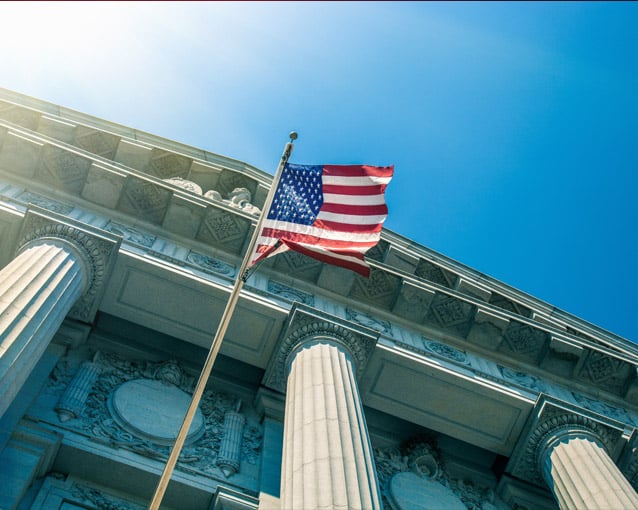Key Takeaways
- A 501(c)(3) organization may engage in lobbying activities so long as “no substantial part" of its activities are devoted to lobbying.
- Organizations can engage in issue advocacy but must avoid activities functioning as political campaign intervention.
- The IRS could revoke an organization's 501(c)(3) tax-exempt status or may assess excise taxes on political expenditures in the event of prohibited activities.
Lobbying and advocacy are vital for 501(c)(3) public charities to inform public policy and advance their missions. However, these activities are tightly regulated, especially during election years.
IRS Guidance on Political Activities Conducted by 501(c)(3) Organizations
Section 501(c)(3) of the Internal Revenue Code (IRC) grants tax-exempt status to organizations organized and operated exclusively for religious, charitable, scientific, testing for public safety, literary, or educational purposes. This status comes with strict rules on lobbying and political activities:
Lobbying Restrictions
A 501(c)(3) organization may engage in lobbying activities — i.e., attempts to influence legislation. However, “no substantial part" of its activities can be devoted to lobbying. The IRS does not clearly define "substantial," which can create uncertainty.
To clarify, organizations can measure their lobbying activities under the Section 501(h) expenditure test, which provides specific guidelines and safe harbors.
Safe Harbor for Lobbying: Section 501(h) Election
The Section 501(h) election sets clear spending limits based on the organization's size, helping reduce the risk of losing tax-exempt status due to excessive lobbying.
- Expenditure Limits: Lobbying is capped based on the organization's exempt purpose expenditures. The limits are tiered, allowing larger organizations to spend more on lobbying.
- Grassroots Lobbying: The election distinguishes between direct lobbying (for instance, communicating with legislators) and grassroots lobbying (like encouraging the public to contact legislators), with separate spending limits for each.
Political Campaign Intervention
While 501(c)(3) organizations may engage in lobbying to a degree, they are strictly prohibited from participating in a political campaign, either for or against a candidate. This ban includes publishing or making statements that support or oppose any candidate.
Key Advocacy Considerations During Election Years
During election years, the distinction between permissible lobbying and prohibited political campaign intervention becomes particularly critical.
Issue Advocacy vs. Political Campaign Intervention
Organizations can engage in issue advocacy, involving taking positions on public policy issues, but must avoid advocacy functioning as political campaign intervention. According to IRS guidance (Rev. Rul. 2007-41), issue advocacy that implicitly supports or opposes a candidate may be considered political campaign intervention.
Voter Education and Registration
501(c)(3) organizations can conduct voter education and registration activities if they remain non-partisan and do not favor or oppose any candidate or party. Examples include:
- Voter Registration Drives: Setting up event booths to register voters without mentioning candidates or parties. The materials available are limited to official voter registration forms allowing registrants to select a party affiliation.
- Voter Education Guides: Distributing questionnaires presenting all candidates' views on a variety of issues without bias. The guide is made generally available to the public without editorial opinion or implication of approval or disapproval of any candidate's views.
- Public Forums and Debates: Hosting events where all candidates are invited and treated equally. Questions are prepared and presented by an independent, non-partisan panel. The organization explicitly states that the views expressed are those of the candidates and not of the organization, and no candidate is endorsed or opposed.
- Neutral Voter Guides on Issues: Publishing factual voting records of all Members of Congress on major issues without commentary.
- Non-Partisan Voter Education Websites: Maintaining a website providing neutral information and links to candidates’ official sites. The links are provided to educate voters and do not favor or oppose any candidate.
Public Statements and Communication by Organization Leaders
Prohibiting political campaign intervention is not intended to restrict free expression on political matters. However, organizational leaders must carefully craft public statements to avoid partisan comments. A leader's endorsement of a candidate in an official publication or event can be considered political campaign intervention.
Consequences of Engaging in Prohibited Political Campaign Intervention
If a 501(c)(3) organization engages in prohibited political campaign intervention, it can face serious consequences:
Loss of Tax-Exempt Status
The IRS can revoke an organization's 501(c)(3) tax-exempt status for any prohibited political activity. However, depending on the nature of the violation and the organization's efforts to prevent it from happening again, the IRS may instead impose an excise tax under Section 4955 instead of revocation.
Imposition of Excise Taxes
In lieu of revoking tax-exempt status, the IRS may assess excise taxes on political expenditures, including:
- An initial 10% tax on the organization’s political expenditures.
- A 2.5% tax on organization managers who knowingly approved the expenditures without reasonable cause, up to $5,000 per expenditure.
- If not corrected in time, an additional tax equal to 100% of the expenditures on the organization and 50% on non-compliant managers, with a maximum of $10,000 per expenditure.
Correction of Political Expenditures
To correct a political expenditure, the organization must recover the expenditure if possible and implement safeguards to prevent future violations.
Next Steps for 501(c)(3) Organizations During Election Season
Navigating the legal landscape of lobbying and advocacy during election years requires careful planning and strict adherence to applicable statutes and regulatory guidance. Both the IRS and the public are highly sensitive to perceived political activity by 501(c)(3) public charities, making it crucial to understand the distinctions between permissible issue advocacy, limited lobbying, and prohibited political campaign intervention.
If your organization is unsure how to proceed with advocacy efforts during this election season, Eide Bailly can help.
Be confident you’re in compliance.
 Speak to our specialists
Speak to our specialistsNonprofit
We’ll help you maximize your resources and remain compliant so you can focus on your mission.


